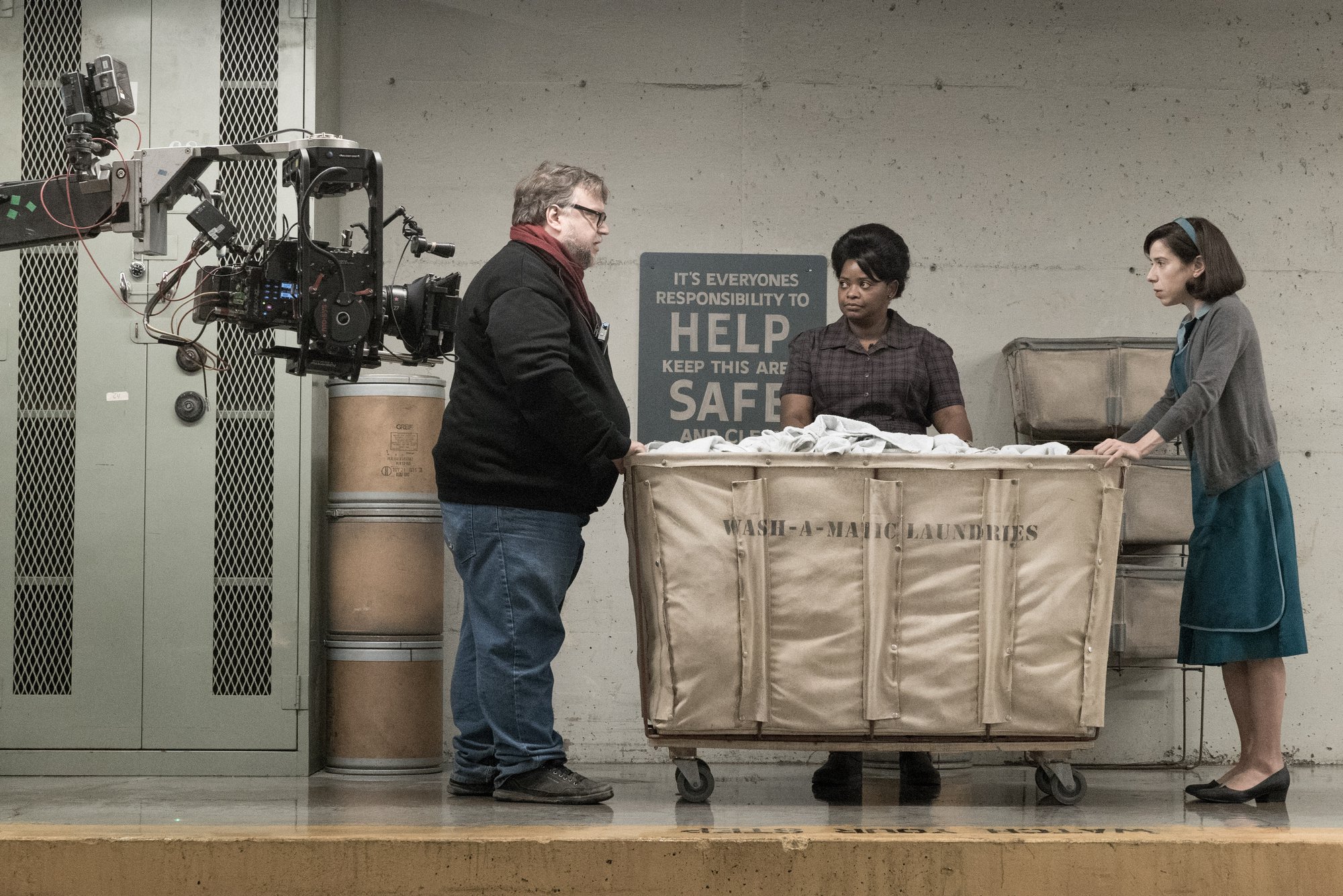The Oscars' weirdest phenomenon
Why does the Academy Awards almost always insist on pairing Best Director with Best Picture?


When last year's Oscars ceremony ended with the flub heard 'round the world, it was easy to wonder how such a disaster could happen.
Technically, of course, it happened because the wrong envelope was handed to presenters Warren Beatty and Faye Dunaway, who then mistakenly named La La Land as Best Picture rather than the actual winner, Moonlight. But another reason the screw-up went as far as it did was that La La Land was widely expected to win. Just 10 or 15 minutes earlier, La La Land seemed to cement its chances with a Best Director prize for Damien Chazelle. Traditionally, the same movie wins Best Picture and Best Director. This is the same thinking currently indicating that perhaps Martin McDonagh's Three Billboards Outside Ebbing Missouri lost some Best Picture momentum when McDonagh was not nominated in the Best Director category, while recently anointed Director's Guild winner Guillermo Del Toro and his movie The Shape of Water are now better-positioned.
But regardless of the odds on Three Billboards, maybe it's time to stop taking that Picture/Director matching tradition for granted.
The Week
Escape your echo chamber. Get the facts behind the news, plus analysis from multiple perspectives.

Sign up for The Week's Free Newsletters
From our morning news briefing to a weekly Good News Newsletter, get the best of The Week delivered directly to your inbox.
From our morning news briefing to a weekly Good News Newsletter, get the best of The Week delivered directly to your inbox.
The split between La La Land and Moonlight was the eighth such instance in 18 years of Oscars — a rate of just under 50 percent. Before this period of more frequent splits kicked off with the 1999 split between Steven Spielberg (Best Director for Saving Private Ryan) and Shakespeare in Love (Best Picture of 1998), it had been a full nine years since this had last happened, when Oliver Stone (Best Director for Born on the Fourth of July) didn't match Driving Miss Daisy (Best Picture of 1989). Stone's triumph came eight years after Chariots of Fire pulled a surprise upset over Reds (but Warren Beatty, participant in the La La Land screw-up, won Best Director as expected). Indeed, for about 40 years a division between the Academy-approved Best Picture and the Best Director was an approximately once-in-a-decade occurrence.
Going further back, the first 30 years or so of the Oscars saw the Picture/Director split happen more frequently — about one third of the time, including each of the first four ceremonies. But as the Picture/Director awards relationship stabilized, the two came to be seen as, if not inextricable, then logical bedfellows. Best Picture and Best Director nominees rarely went five for five, yet the incongruities gained notice because they seemed to disqualify certain nominees from the race. Few Best Picture winners could get there without the director at least nominated, and even fewer Best Director nominees could hope for a win without their movie in what was then the final five. There were the inevitable Oscar-night jokes about the poor Best Picture nominees who "apparently directed [themselves]," in sympathy of shut-out directors like Rob Reiner, whose A Few Good Men became an also-ran when Reiner didn't make the cut.
Now that the Best Picture category has been expanded to accommodate anywhere from five to 10 nominees, though, there are more movies in competition, and it's not just one or two "snubbed" for Best Director. In a typical year, there are at least three, sometimes more. The category still has its clear also-rans; it seems unlikely that this year's The Post, with just two nominations total, will become a surprise victor. But it's also been made distinct from Best Director in a way that feels productive.
Before the expansion, Picture/Director mismatches could be frustrating. Think of how the Academy deemed Traffic the best-directed, best-written, best-edited movie of the year 2000, with a Supporting Actor Oscar to boot, yet also determined that in some ineffable way — its Pictureness? — it was inferior to Gladiator.
A free daily email with the biggest news stories of the day – and the best features from TheWeek.com
Following the nominee expansion, though, the more frequent Picture/Director splits have made the ceremony more interesting. So many Oscars of the past tended to boil down to either a looming inevitability or a rivalry between two strong contenders. This even happened last year, where two scrappy, beautifully made movies were refashioned into David and Goliath, the personality and intimacy of La La Land blown up to Hollywood hubris while the ambition of Moonlight was shrunk down to the Little Indie That Should. Splitting two major awards was a neat surprise that sidestepped that tired narrative, and celebrated two of the year's best movies. And that's the idea of the Oscars, right? To celebrate filmmaking?
That's not to say the Oscars can't be questioned. For instance, a lot of Picture/Director splits tend to reward directors for working on technically complex productions: Alfonso Cuarón's eye-popping visuals in Gravity, Ang Lee's mastery of 3D effects in Life Of Pi, and Alejandro González Iñárritu's Malickian awe of the natural world in The Revenant all have a certain show-offy quality that their non-corresponding Best Pictures (12 Years a Slave, Argo, Spotlight) lack. This is bad news for Greta Gerwig, whose Lady Bird is as well-directed as just about any 2017 movie, but may not strike voters as sufficiently lavish or technically challenging.
There's also an unfortunate tendency for these splits to deny black filmmakers the Best Director prize; Moonlight's Barry Jenkins and 12 Years a Slave's Steve McQueen make up 40 percent of all black filmmakers ever nominated for Best Director, and they both lost despite their films winning Best Picture, which would auger poorly for Get Out's Jordan Peele even if his film has captured the zeitgeist.
But while the Academy may still think about film directing in ways that are frustratingly narrow, it's hard to deny that this year's nominees — Peele, Gerwig, Del Toro, Christopher Nolan, and Paul Thomas Anderson — represent a strong cross-section of talent. Authorial voice, technical challenges, career longevity, and first-film freshness are all represented here, by filmmakers of relatively diverse backgrounds, without taking anything away from obviously well-liked movies like Three Billboards, The Post, or stuffy-Academy catnip Darkest Hour.
Even if prognosticators still have their favorites (Del Toro seems like a good bet), the awards' recent history go a long way towards making the Oscars feel both more like a genuinely suspenseful event and a stronger appreciation of the movies in contention.
Jesse Hassenger's film and culture criticism has appeared in The Onion's A.V. Club, Brooklyn Magazine, and Men's Journal online, among others. He lives in Brooklyn, where he also writes fiction, edits textbooks, and helps run SportsAlcohol.com, a pop culture blog and podcast.
-
 Are pesticides making florists sick?
Are pesticides making florists sick?Under the Radar Shop-bought bouquets hide a cocktail of chemicals
-
 Will Trump’s 10% credit card rate limit actually help consumers?
Will Trump’s 10% credit card rate limit actually help consumers?Today's Big Question Banks say they would pull back on credit
-
 3 smart financial habits to incorporate in 2026
3 smart financial habits to incorporate in 2026the explainer Make your money work for you, instead of the other way around
-
 Walter Isaacson's 'Elon Musk' can 'scarcely contain its subject'
Walter Isaacson's 'Elon Musk' can 'scarcely contain its subject'The latest biography on the elusive tech mogul is causing a stir among critics
-
 Welcome to the new TheWeek.com!
Welcome to the new TheWeek.com!The Explainer Please allow us to reintroduce ourselves
-
 The Oscars finale was a heartless disaster
The Oscars finale was a heartless disasterThe Explainer A calculated attempt at emotional manipulation goes very wrong
-
 Most awkward awards show ever?
Most awkward awards show ever?The Explainer The best, worst, and most shocking moments from a chaotic Golden Globes
-
 The possible silver lining to the Warner Bros. deal
The possible silver lining to the Warner Bros. dealThe Explainer Could what's terrible for theaters be good for creators?
-
 Jeffrey Wright is the new 'narrator voice'
Jeffrey Wright is the new 'narrator voice'The Explainer Move over, Sam Elliott and Morgan Freeman
-
 This week's literary events are the biggest award shows of 2020
This week's literary events are the biggest award shows of 2020feature So long, Oscar. Hello, Booker.
-
 What She Dies Tomorrow can teach us about our unshakable obsession with mortality
What She Dies Tomorrow can teach us about our unshakable obsession with mortalityThe Explainer This film isn't about the pandemic. But it can help viewers confront their fears about death.
